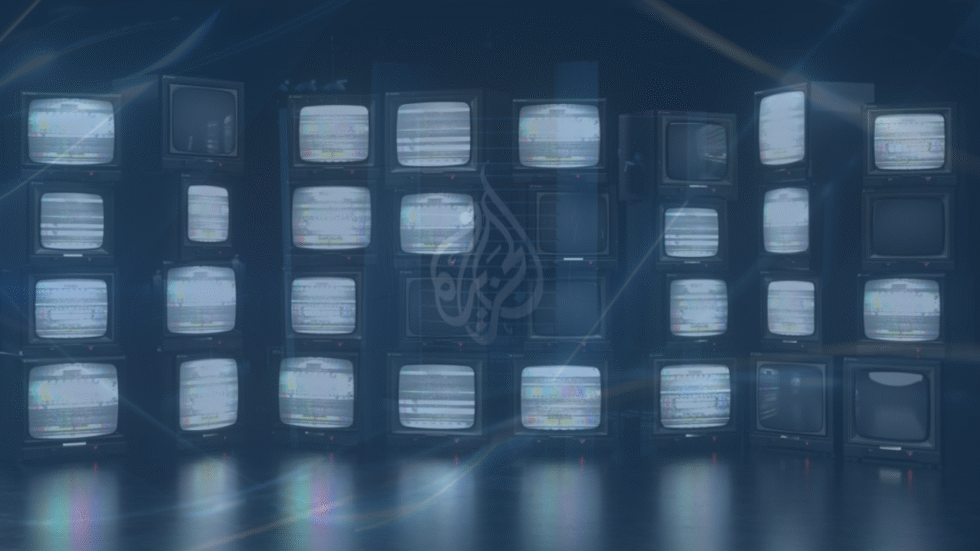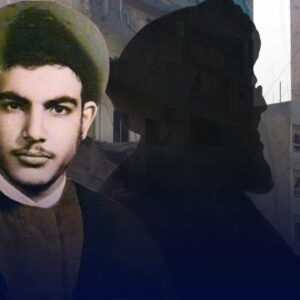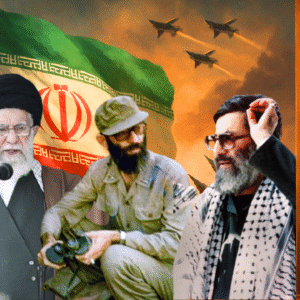The Boundaries of Acceptable Resistance: How Al Jazeera Shapes the Illusion of Dissent

“The press is so powerful in its image-making role, it can make the criminal look like he’s the victim and the victim look like he’s the criminal.” – Malcolm X (The Ballot or the Bullet, April 3, 1964)
To much of the Global South, Al Jazeera became more than a broadcaster – it was a declaration. It challenged Western hegemony, spoke truth to empire, and unearthed the lies woven into the rhetoric of freedom. It showed what CNN would not, amplified those the world had muted, and gave the Arab world a mirror in which it could, for once, recognize itself.
Yet behind this aura of defiance lies a quieter, more deliberate design. Al Jazeera does not dismantle the global media order; it perfects it. It sharpens its logic, polishes its contradictions, and packages rebellion into a form digestible to power.
The network has perfected the spectacle of defiance – a choreography of opposition that never risks crossing the boundaries of political or economic comfort. It occupies a delicate dual role: chastising the empire’s crimes while protecting the architecture that allows them. Its brand of “resistance” is the kind that comforts rather than confronts – a resistance that questions imperial rhetoric but never the empire’s foundations, that critiques injustice but never the interests that perpetuate it.
Perhaps this is the genius of modern media: to make the limits of dissent feel like freedom itself. Al Jazeera is both a symptom and symbol of that paradox – defiant in image, compliant in essence, carefully policing the boundaries of who may resist and how far that resistance may go.
Manufacturing the Spectrum of Legitimacy
Media institutions do not merely report resistance – they define it. Through the subtle art of framing, they decide which struggles deserve sympathy and which are doomed to condemnation. The same act, be it the throwing of a stone, the launch of a missile, or the reclaiming of a street, may be an act of ‘self-defense’ to one eye and an act of ‘terror’ to another. The difference lies not in morality, but in the power to tell the story.
Western outlets such as CNN and the BBC have long been accused of this narrative engineering – normalizing occupation while demonizing retaliation, humanizing one people while erasing another. Yet the deeper flaw transcends any single newsroom. Every major broadcaster, whether state-funded or privately owned, functions within an ecosystem of interests. Together, they draw the invisible borders of what the global public is allowed to perceive as ‘reasonable dissent.’
What distinguishes Al Jazeera is not its distance from this order, but its refinement of it. It offers a rhetorical alternative that’s fluent in the language of resistance yet remains tethered to the political imperatives of its patrons. The result is a paradoxical creation: a state-funded aesthetic of defiance, polished enough to appear radical, restrained enough to remain safe. It gives the Arab world, and those who stand with it, the comfort of representation, but only within the boundaries of Qatar’s foreign policy and the security frameworks of its Western allies.
In the end, it is resistance wrapped in silk – fierce in appearance, soft in consequence. A defiance that performs rebellion yet never risks shattering its own reflection.
The Myth of Independence
Since its inception in 1996, Al Jazeera presented itself as a revolutionary force in Arab media: bold, confrontational, and unapologetically pan-Arab. It shattered the mold of obedient state broadcasters that had long dominated the region, giving space to voices of dissent and daring to question governments once considered untouchable. For years, it was celebrated as “the Arab CNN with teeth.”
Yet the comparison is truer than its admirers care to admit. CNN was, and remains, a vessel of American soft power, exporting U.S. perspectives beneath the veneer of global journalism. Al Jazeera, in its own way, became Qatar’s most sophisticated instrument of foreign policy: a projection of soft power disguised as rebellion.
Behind its audacious journalism lies the architecture of state interest. The Al Jazeera Media Network is entirely funded by the Qatari government, and its leadership and editorial direction have consistently reflected Doha’s political priorities. Academic studies, including Al Jazeera and Qatari Foreign Policy: A Critical Approach by Al-Najjar (2015), have long observed that the network is “far from immune to the influence of the state,” often amplifying narratives that align with Qatari diplomacy while silencing those that contradict it.
This dynamic explains the selective boldness of its coverage. When Qatar sought to brand itself as the voice of Arab liberation during the Arab Spring, Al Jazeera was fearless. It streamed the revolutions live, glorified the uprisings, and turned ‘Tahrir’ into a household name.
But when protests erupted in Bahrain in early 2011, the tone shifted dramatically. Coverage that had been minute-by-minute in Cairo became subdued and hesitant. Critics at the time described it as a “media blackout,” a silence consistent with Qatar’s alliance with fellow Gulf monarchies. Despite Bahrain’s violent crackdown that included mass arrests, suppression of demonstrations, and the silencing of local media, Al Jazeera Arabic gave the story limited prominence, echoing the Bahraini government’s framing of events as sectarian unrest or Iranian interference. Meanwhile, Al Jazeera English took a markedly different approach: its award-winning documentary Bahrain: Shouting in the Dark offered an unflinching look at the uprising, exposing the brutality of the regime and winning international praise. The stark contrast between the two channels revealed a deeper truth about Al Jazeera’s dual identity – revolutionary in image, yet careful to avoid jeopardizing Qatar’s political alignments.
The contradiction was unmistakable. Al Jazeera championed resistance only when it served Qatar’s strategic design – when defiance weakened rivals or elevated Doha’s image as the broker of Arab transformation. But where resistance threatened to expose Qatari interests, it was rewritten, restrained, or erased.
Al Jazeera and the Art of “Managed” Resistance
To understand Al Jazeera’s brand of dissent, one must look beyond its broadcasts and into the quiet geometry of its omissions: the stories it refuses to tell.
Take, for instance, its treatment of Israel. On the surface, Al Jazeera appears among the most unflinching voices against Israeli occupation. It airs the anguish of Gazans, amplifies Palestinian voices, and documents settler violence that Western networks often sanitize or ignore. Yet beneath this façade of solidarity lies a careful composition. The network condemns Israeli crimes, but rarely interrogates the Qatari diplomacy that keeps open channels with Tel Aviv.
Qatar’s coordination with Israel – economic, political, and mediated through humanitarian aid into Gaza – has always been managed with quiet pragmatism. It remains one of the few Arab states to sustain discreet dialogue with Israel, veiled beneath the vocabulary of “mediation.” Yet Al Jazeera’s English-language coverage seldom situates this relationship within the broader context of Palestine. Viewers are left to believe in Doha’s unwavering commitment to the cause, unaware that this solidarity is conditional, and, at times, theatrical.
The same selective vision extends to its portrayal of Iran. Though Al Jazeera markets itself as the antidote to Western bias, its framing often mirrors Western hostility toward Tehran and its regional allies. In its coverage of Syria and Yemen, the network has consistently tilted toward factions aligned with Qatari foreign policy: generous toward Islamist coalitions, unrelenting toward the Axis of Resistance.
When the United States assassinated General Qasem Soleimani in 2020, Al Jazeera English echoed the diction of Washington, describing him as “divisive,” “controversial,” even “polarizing”, rather than recognizing him as a symbol of anti-imperialist defiance across the region.
Even the network’s celebrated investigative unit betrays the boundaries of its freedom. It exposes corruption in Africa, espionage in Israel, and disinformation in the United Kingdom, yet it never turns the camera inward. There are no exposés on the Al-Udeid Air Base – the largest U.S. military installation in the Middle East – operating quietly on Qatari soil.
This silence is not incidental; it is structural. It reveals a media order in which resistance is tolerated only within the perimeter of alliance. The same state that funds a network preaching liberation also hosts more than ten thousand American troops, and earlier this year signed a defense pact with Washington – a pact that cements the United States as the guarantor of Qatar’s security.
That pact is not merely a defense agreement; it is a narrative covenant. The deeper the military bond with Washington, the narrower the corridor of editorial independence. Al Jazeera’s journalists may condemn America’s wars, but they cannot question the machinery that makes Qatar a participant in them. The empire may be criticized, but never its foundations.
The Politics of “Acceptable” Resistance
Every empire requires its chorus of critics – voices that appear to oppose it yet ultimately sustain its moral architecture. Legitimacy is rarely imposed by force alone; it is manufactured through the performance of dissent. The most enduring systems of power do not survive despite their critics, but because of them.
The global media order operates not through censorship, but through calibration. It rewards certain forms of defiance – those that challenge tone, not foundation; appearance, not structure. Within this design, “acceptable resistance” becomes the empire’s safety valve, a spectacle of protest that comforts the conscience while preserving the system.
Al Jazeera fits neatly within this equation. It channels the fury of the street but filters it through the grammar of diplomacy. It turns revolution into reform and occupation into “conflict.” It delivers outrage without consequence – a theater of resistance that ends the moment the cameras do.
This mechanism is hardly unique to Doha. Western media perfected the formula long ago. The BBC can produce documentaries lamenting Britain’s colonial past while ignoring its ongoing entanglements. CNN can chastise Washington’s “mistakes” abroad while reaffirming America’s moral authority to lead. France 24 can mourn the devastation of Gaza while echoing Paris’ insistence on Israel’s “right to defend itself.”
What sets Al Jazeera apart is its dual identity – Western enough to be credible, Arab enough to appear rebellious. Its anchors speak the idiom of liberation, yet its editorial compass remains fixed toward Doha. When Qatar mediates talks between the Taliban and the United States, between Hamas and Israel, or between Iran and the West, the network’s tone softens. Mediation demands neutrality, or at least the performance of it.
But neutrality in this context is not journalistic virtue; it is political calculation. To preserve its image as a “bridge” state, Qatar must be both revolutionary and reliable, both critic and ally. Al Jazeera becomes the stage upon which this paradox performs itself daily: revolutionary before the camera, pragmatic behind the curtain.
The recent U.S.–Qatar defense pact only deepens this duality. By designating Qatar a “major non-NATO ally,” Washington ensures the permanence of its military footprint in the Gulf, while Doha secures protection from regional rivals. The bargain quietly redefines Qatar’s political priorities, and, with them, the editorial boundaries of its most influential voice.
A state that depends on American protection cannot sustain a network that truly challenges American interests. And so criticism becomes ritual, not rebellion. America’s wars are lamented, but its presence is never questioned. The empire’s violence is condemned, but its architecture remains sacred.
The Illusion of Representation
What Al Jazeera offers its audiences is not liberation, but recognition. It offers the comfort of being seen without the power to change what is seen. It is a mirror that flatters more than it reflects. For millions across the Arab world and its diaspora, it validates anger, gives shape to despair, and then folds both neatly into narratives that leave the architecture of power untouched.
The illusion of representation is seductive. When the oppressed witness their wounds broadcast to the world, it feels like justice; when their grief is given language, it feels like victory. Yet empowerment without agency is not transformation – it is consolation, a soothing of the collective conscience that dulls its own potential for revolt.
The evidence lies not in what the network proclaims, but in what it refuses to sanctify. Armed resistance movements that challenge Western or Qatari interests are ignored, filtered through sectarian frames, or rebranded as “security threats.” Even the word ‘resistance’ itself has been declawed: stripped of defiance, repackaged into a safe and marketable ideal palatable to diplomacy.
And yet, despite its contradictions, Al Jazeera continues to occupy a potent symbolic space. For many in the Arab world, it remains the only network that dared to say ‘Palestine’ when others would not. But that act of linguistic courage has become its ceiling rather than its foundation – the high-water mark of a defiance that no longer grows. The tragedy is that the bare minimum has been mistaken for the ultimate act of resistance.
Beyond the Mirage of Resistance
The critique of Al Jazeera is not a dismissal of its journalism, but an invitation to see it within the conditions that shape it. It has unveiled uncomfortable truths, challenged Western hypocrisy, and amplified voices the world preferred unheard. Yet journalism is not defined by the truths it dares to tell, but by the truths it learns to avoid.
The boundaries of “acceptable resistance” are traced not only in Washington or London, but in Doha as well. They are maintained not merely through propaganda, but through omission – through the silence that follows a story left untold. As long as resistance is filtered through the logic of alliance, it remains ornamental: noble in sentiment, impotent in consequence.
To truly decolonize media is not to replace Western mastheads with Arab ones, but to dismantle the manner that teaches both to speak the dialect of power. It means building platforms beholden not to states, but to people; not to diplomacy, but to liberation itself.
Until that day, Al Jazeera will remain what it has always been: a mirage of defiance shimmering across the desert of empire, dazzling to the eye, intoxicating in its promise, yet dissolving into dust the moment one reaches for its truth.
If you value our journalism…
TMJ News is committed to remaining an independent, reader-funded news platform. A small donation from our valuable readers like you keeps us running so that we can keep our reporting open to all! We’ve launched a fundraising campaign to raise the $10,000 we need to meet our publishing costs this year, and it’d mean the world to us if you’d make a monthly or one-time donation to help. If you value what we publish and agree that our world needs alternative voices like ours in the media, please give what you can today.




